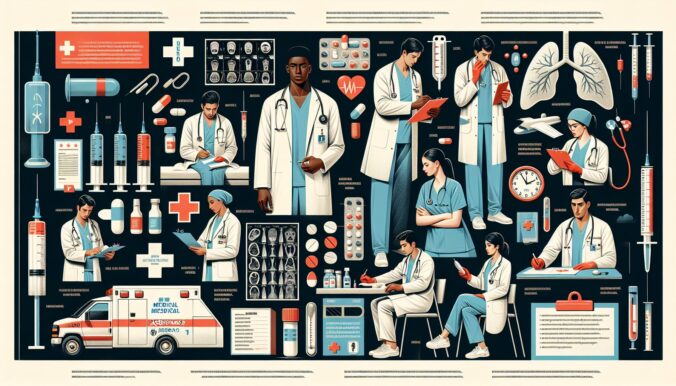When you or a loved one is in need of medical assistance, it is important to know where to turn for help. From minor injuries to serious health conditions, having access to the right medical care can make all the difference in the outcome. In this guide, we will explore the different options available for medical help and how to access them in times of need.
Emergency Services
In the case of a life-threatening emergency, it is imperative to dial 911 immediately. Emergency services, such as paramedics and firefighters, are trained to provide rapid response and critical care to those in need. They can assess the situation, provide necessary treatment on-site, and transport the patient to the nearest hospital for further care. It is important to stay calm and provide as much information as possible to the dispatcher to ensure the appropriate level of care is dispatched.
Urgent Care
For non-life-threatening medical issues that require immediate attention but are not serious enough for the emergency room, urgent care centers are a great option. These facilities offer extended hours and walk-in appointments for a variety of medical services, such as minor injuries, infections, and common illnesses. They are a convenient alternative to the emergency room for issues that cannot wait for a regular doctor’s appointment.
Primary Care Physician
Your primary care physician is your first line of defense for managing your overall health and wellbeing. They provide routine check-ups, preventive care, and treatment for common ailments. It is important to have a trusted relationship with your doctor to ensure proper care and guidance for your health concerns. If you are experiencing symptoms or have concerns, schedule an appointment with your primary care physician for a thorough evaluation and treatment plan.
Telemedicine
With the advancement of technology, telemedicine has become a popular option for receiving medical help without leaving the comfort of your home. Many healthcare providers offer virtual appointments for non-urgent issues, such as medication refills, follow-up consultations, and general medical advice. Telemedicine is a convenient and accessible way to address your healthcare needs without the hassle of waiting rooms and travel time.
In conclusion, knowing where to turn for medical help is crucial for maintaining your health and wellbeing. Whether it’s a life-threatening emergency or a minor health concern, having access to the right resources can make all the difference in the outcome. By utilizing emergency services, urgent care centers, primary care physicians, and telemedicine, you can ensure that you receive the appropriate care for your medical needs. Stay informed, stay prepared, and prioritize your health by seeking medical help when you need it.
